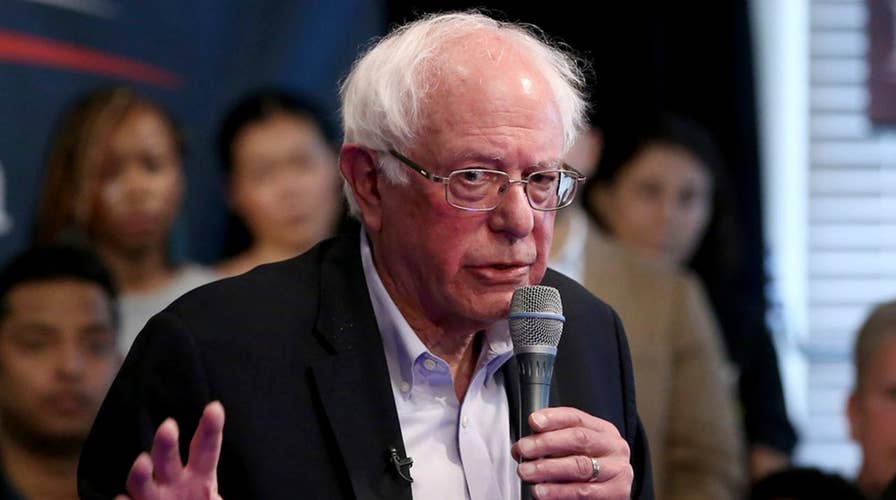Bernie Sanders doubles down on giving felons the right to vote
Sanders says even the Boston bomber should have the right to vote while in prison; reaction from First Step Act beneficiary Matthew Charles.
Vermont Sen. Bernie Sanders is not a Democrat. Even though he ran unsuccessfully to be the Democratic presidential nominee in 2016 and has launched a similar effort for 2020, Sanders has, at every opportunity, disassociated himself from the Democratic party politically and ideologically.
In 2006 and 2012 he ran for the Democratic nomination for Senate in Vermont, and both times declined the nomination after victory, choosing to run instead as an independent. Sanders briefly joined the Democratic party to run in the 2016 New Hampshire presidential primary, but after winning the primary he un-enrolled in the Democratic party.
Indeed, even as he seeks the highest public office as a Democrat, Sanders has simultaneously filed paperwork to run for Senate as an independent in 2024.
FORMER CLINTON ADVISER, FIERCE CRITIC OF SANDERS NOW PRAISES 2020 CAMPAIGN
The equivocality of Sanders’ party affiliation looms large over a contentious and vexing presidential campaign cycle. There will likely be residual resentment from the Sanders campaign over the Democratic National Committee plainly and unfairly favoring Hillary Clinton in 2016.
According to RealClearPolitics, Bernie Sanders is polling in second place, behind former Vice President Joe Biden who announced his candidacy this week.
A recent Emerson poll found 26 percent of Sanders' supporters would vote for President Trump over Sen. Elizabeth Warren, D-Mass., if they were the candidates in the general election.
Sanders’ poll numbers, fundraising, and his substantial base coupled with the historic ambiguity of his relationship with the Democratic Party represent a real opportunity to seek the presidential nomination as a third-party candidate — even if he does not receive enough delegates to become the Democratic nominee.
Sanders has said himself that he is and has only run as a Democrat for president because running as a third-party candidate would diminish his chances. But in 2016, it was not his socialist policies or history as an independent that diminished his chances, but the DNC itself.
Sanders has no loyalty to the Democratic party beyond his necessary connection to win elections, and if that connection no longer becomes necessary, what happens if he decides to run as a third-party candidate in 2020?
Bernie Sanders has acquired incredibly loyal supporters since his 2016 campaign. So loyal, in fact, that a recent Emerson poll found 26 percent of Sanders' supporters would vote for President Trump over Sen. Elizabeth Warren, D-Mass., if they were the candidates in the general election.
CLICK HERE TO GET THE FOX NEWS APP
Similarly, the poll found 100 percent of those who said they support South Bend Mayor Pete Buttigieg would support Sanders over Trump. Just 79 percent of those supporting Sanders said they would vote for Buttigieg over Trump.
We are still many months out from the Democratic primaries and more Democrats are announcing their campaigns for president every day. As the field finalizes, one must ask if Sanders will even support the eventual Democratic nominee if he feels he has been denied the nomination.









































